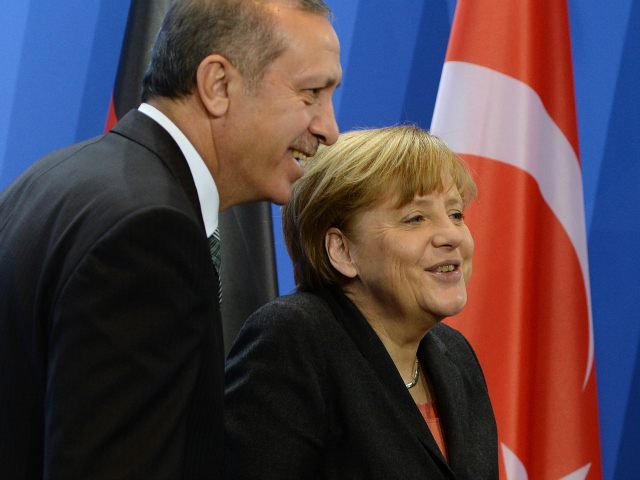Europe’s crack team of negotiators have struck another blow to the continent, establishing a new deal with Turkey and its Islamist government in a bid to “ease” the migrant crisis. In return for Turkey absorbing more Syrian migrants for long-term settlement, the EU will fast-track a “visa liberalisation” process for Turkish nationals, granting Schengen-style access to European Union member states for all 75 million Turkish residents.
The bid has been called “madness” by some eurosceptics, with UKIP leader Nigel Farage tweeting late last night: “Agreeing to liberalise visa requirements for 75 million Turkish nationals is another form of EU madness”.
The deal was negotiated between Ankara and the European Commission, and will see Turkey granted access to the EU’s Schengen zone by 2016, as well as being handed €3bn in European tax payer funding. The country will also see its EU membership bid “re-enerigsed” according to the Financial Times, with the country being placed on the EU’s “safe list” of countries, despite a major terrorist attack on Turkish soil just last week.
Already across Europe, Turkish migrants have been involved in violent clashes with their Kurdish counterparts. The liberalisation of border controls between Turkey and EU member states will raise concerns that this may become a common occurrence in major European cities.
The FT says: “In return, Turkey pledges strengthen its border controls — including greater co-operation with Greece, which has seen a massive influx of refugees from the region”.
The news is a major coup for President Erdogan ahead of Turkey’s snap elections in just two weeks time.
“We insisted that this visa liberalisation will happen on an extremely precise and monitored basis . . . I insisted on this so that there is no misunderstanding or ambiguity,” said French President Francois Hollande, who himself will be using the next 18 months fending off challenges to his presidency before the country’s elections in April 2017. Opening the borders to 75 million more people before then could hand more campaigning power to Front National candidate Marine Le Pen.
The “action plan” now requires the approval of EU member states, though it is believed that many have already declared their approval. Stumbling blocks may include countries like Cyprus, Hungary, and potentially

COMMENTS
Please let us know if you're having issues with commenting.